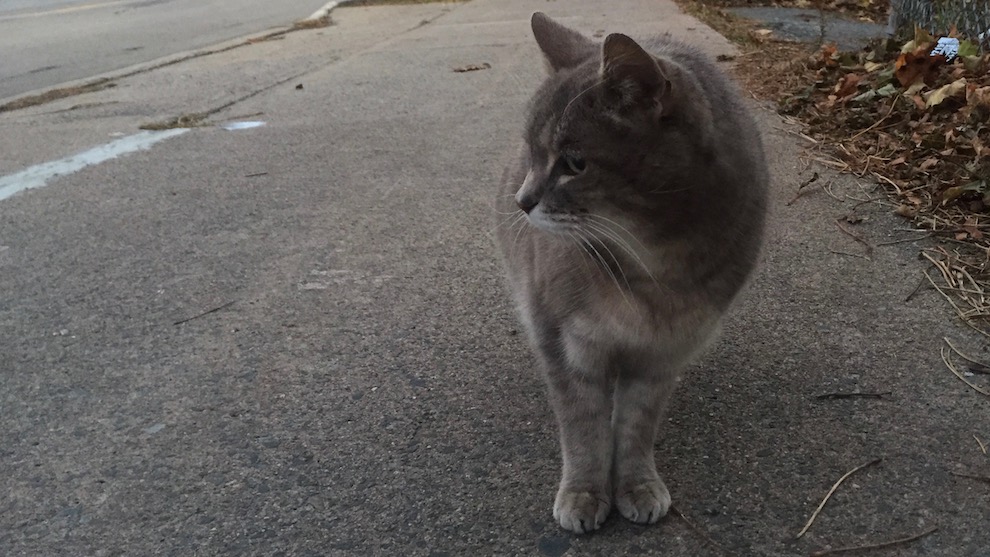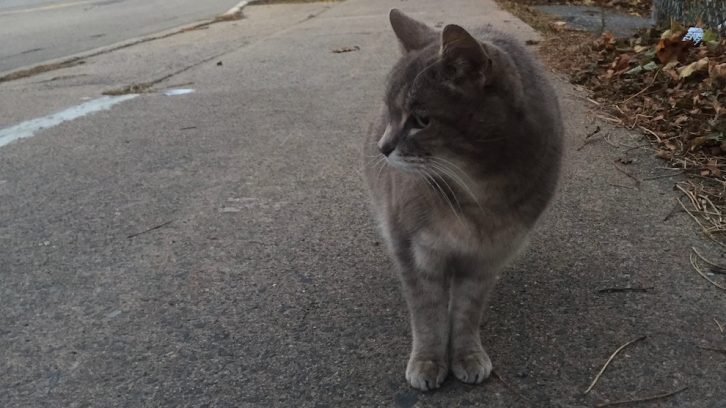Cats
Cat advocates say responsible pet ownership solution to ‘cat crisis’
Ecology Action Centre looks at pet bylaws in Vaughan, Ont., as good example

caption
Currently, domestic cats are not required to be tagged or leashed outside.
caption
Currently, domestic cats are not required to be tagged or leashed outside in Halifax.All domestic cats in the Halifax Regional Municipality would need to be licensed and leashed when outdoors, if a program proposed by the Ecology Action Centre is successful.
EAC invited Susan Kelly, manager of animal services for Vaughan, Ont., to talk about responsible pet ownership with regional councillors and the public. Kelly, EAC representatives and the councillors met on Tuesday and again on Wednesday.
Vaughan requires that all cats be licensed and leashed. Additionally, a maximum of three cats is allowed per household.
Kelly said the main goal of a good pet ownership program is not to punish but to educate cat owners about bylaw benefits. Related stories
“We don’t just want to be seen as a punitive body,” Kelly said in an interview Tuesday. “We’re not heavy-handed with tickets. We go out there, we talk to people. We always assume that people maybe don’t know.”
Kelly said keeping cats safe is the main priority of the law. “Robust” vaccination programs, she said, can help keep cats healthy and proper identification ensures that when a cat is found, it can easily get a “free ride home.”
She added that getting pet cats spayed or neutered when they are young helps to control the cat population. It can also be controlled by requiring pet stores to get cats from adoption agencies rather than breeders.
“Any animal that’s coming through a shelter or rescue agency is already displaced. It needs a home,” she said. “Why would we want to bring commercially bred animals into that picture?”
The best way for cat owners to ensure the safety of their pets is to keep them indoors, or supervised when they are outside, Kelly said.
There were between 40,000 and 94,000 stray or feral cats in the HRM in January 2010, according to the municipality. Cats can be hurt roaming around in the street and can easily get sick with diseases that range from immunodeficiency viruses to rabies. Rabies can also be passed on to humans.
According to the Government of Canada website, domestic and feral cats kill around 204 million birds each year in Canada.
Cat debate
Cats and the laws surrounding them have been debated by council off and on for years. In 2007, for example, the issue of whether cats should even be included in proposed animal by-law A-300 was widely discussed.
The only cat ownership rule currently in place in Halifax asks owners to keep their cats from damaging public property and from attacking people or other animals. It was enacted as part of bylaw A-700 in November 2015.
Kelly said this bylaw is a “useless tool” without proper identification for cats.
“There’s a cat that’s causing damage, and you have someone that calls you to complain about it,” she said. “Well, you have no idea who belongs to this cat.”
In January, council passed a motion to budget $250,000 over the next five years for trap, neuter and return programs, which help sterilize feral and stray cats.
However, Kelly said a good responsible pet ownership program would go beyond simply sterilizing the cats; it would keep them from being lost on the streets in the first place.
Public meeting
Kelly spoke about responsible pet ownership at a public event at Saint Mary’s University on Tuesday night, which was organized by the EAC. The event, How to Solve the Cat Crisis, included a panel discussion with Kelly and representatives from Hope for Wildlife, the Canadian Wildlife Service and the Cobequid Wildlife Rehabilitation Centre.
Cindy Murphy, a volunteer with Spay Day HRM, likes the cat rules in Vaughan, and says letting cats outdoors causes unnecessary harm.
“It’s completely needless,” Murphy said. “They’re turfed out, they’re abandoned, they’re left to starve and freeze.”
Patti Green, bird outreach co-ordinator for the EAC, said in an interview before Tuesday night’s event that she hoped it would spark a positive public conversation about responsible cat ownership.
“This is exciting,” she said. “These programs exist out there and we have someone here who can talk to us about how it can potentially be implemented.”
Green hopes regional council will put forward a motion for a staff report in the near future, in order to discuss responsible pet ownership program options.

R
Ron Stockton
C
Carolyn Power